Ditapis dengan

E-book The Decisive Battles of World History
Throughout history, military engagements have altered the course of historical events, causing major changes both on a global scale (the battles of Yarmouk & al-Qadisiyyah in 636 determined the religious/linguistic orientation of the Middle East that persists today) as well as within individual cultures (the 1836 battle of San Jacinto gave the United States nearly one-third of its continental t…
- Edisi
- -
- ISBN/ISSN
- 9781629970585
- Deskripsi Fisik
- 268 halaman
- Judul Seri
- -
- No. Panggil
- 940.4 ALD t
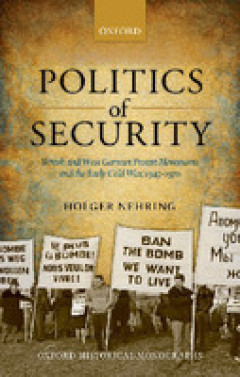
E-book Politics of Security: British and West German Protest Movements and th…
The Politics of Security tells the story of how people experienced the cold war as a war. It is about the impact of the cold war on political cultures. This crucial issue is often forgotten in historical memory. In particular, the book follows British and West German anti-nuclear-weapons activists in their attempts to campaign for and create security after the destruction of the Second World Wa…
- Edisi
- -
- ISBN/ISSN
- 9780199681228
- Deskripsi Fisik
- 342 halaman
- Judul Seri
- -
- No. Panggil
- 940.54 NEH p
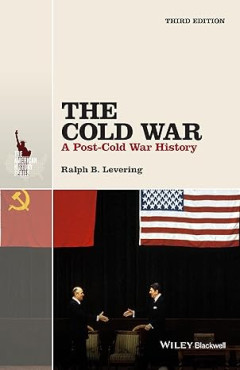
E-book The Cold War: A Post-Cold War History, Third Edition
Thoroughly updated in light of new scholarship, including revised sections on President Nixon’s policies in Vietnam and President Reagan’s approach to U.S.-Soviet relations Features six all new "counterparts" sections that juxtapose important historical figures to illustrate the contrasting viewpoints that characterized the Cold War Argues that the success of Western capitalism during th…
- Edisi
- -
- ISBN/ISSN
- 9781118848401
- Deskripsi Fisik
- 298 halaman
- Judul Seri
- -
- No. Panggil
- 940.54 LEV t
E-book Footprints of War : Militarized Landscapes in Vietnam
In Februruary 1972, Working in the perpetual Drizzle that shrouds the central coast of Vietnam each winter, soldiers from the Army of the Republic of Vietnam (ARVN) produced a photographic inventory of two bases newly acquired from the Americans. Just a few weeks before, some thirty thousand US Army and Marine Corps troops removed themselves with thousands of tons of equipment from Ph�…
- Edisi
- -
- ISBN/ISSN
- 9780295743875
- Deskripsi Fisik
- 282 hlm
- Judul Seri
- -
- No. Panggil
- 940.54 DAV f 002893-eB-0122
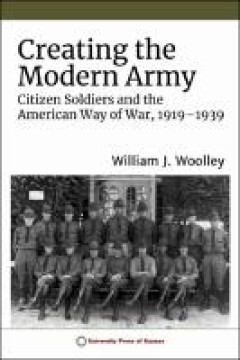
E-Book Creating the Modern Army: Citizen-Soldiers and the American Way of War…
The modern US Army as we know it was largely created in the years between the two world wars. Prior to World War I, officers in leadership positions were increasingly convinced that building a new army could not take place as a series of random developments but was an enterprise that had to be guided by a distinct military policy that enjoyed the support of the nation. In 1920, Congress accepte…
- Edisi
- -
- ISBN/ISSN
- 9780700633029
- Deskripsi Fisik
- 384 halaman
- Judul Seri
- -
- No. Panggil
- 940.4 WOO c
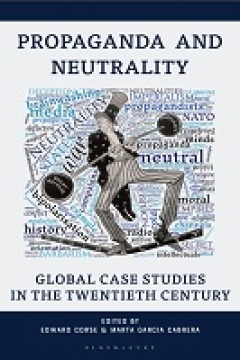
E-Book Propaganda and Neutrality: Global Case Studies in the Twentieth Century
This is the first broad-ranging, comprehensive and comparative study of the concepts of propaganda and neutrality. Bringing together world-leading and early career historians, this open access book explores case studies from the time of the First World War to the end of the Cold War in countries such as Belgium, Greece, Spain, Portugal, Ireland, Switzerland, Vichy France, USA, Argentina, Turkey…
- Edisi
- -
- ISBN/ISSN
- 9781350325531
- Deskripsi Fisik
- 329 halaman
- Judul Seri
- -
- No. Panggil
- 355.02 COR p
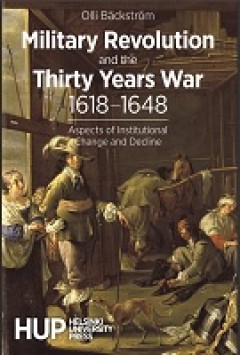
E-Book Military Revolution and the Thirty Years War 1618–1648: Aspects of I…
Military Revolution and the Thirty Years War 1618–1648 investigates change and decline in military institutions during a period of protracted and destructive European warfare. Conceptual background is provided by the Military Revolution thesis, which argues that changes in military technology and tactics drove revolutionary transformation in the way states organised and waged war in the early…
- Edisi
- -
- ISBN/ISSN
- 9789523690912
- Deskripsi Fisik
- 313
- Judul Seri
- -
- No. Panggil
- 303.66 BAC m
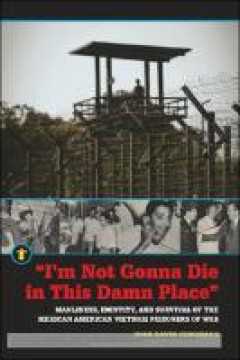
E-Book I'm Not Gonna Die in This Damn Place
By the time of the Vietnam War era, the “Mexican American Generation” had made tremendous progress both socially and politically. However, the number of Mexican Americans in comparison to the number of white prisoners of war (POWs) illustrated the significant discrimination and inequality the Chicano population faced in both military and civilian landscapes. Chicanos were disproportionately…
- Edisi
- -
- ISBN/ISSN
- 9781628953213
- Deskripsi Fisik
- 217 halaman
- Judul Seri
- -
- No. Panggil
- 940.54
 Karya Umum
Karya Umum  Filsafat
Filsafat  Agama
Agama  Ilmu-ilmu Sosial
Ilmu-ilmu Sosial  Bahasa
Bahasa  Ilmu-ilmu Murni
Ilmu-ilmu Murni  Ilmu-ilmu Terapan
Ilmu-ilmu Terapan  Kesenian, Hiburan, dan Olahraga
Kesenian, Hiburan, dan Olahraga  Kesusastraan
Kesusastraan  Geografi dan Sejarah
Geografi dan Sejarah